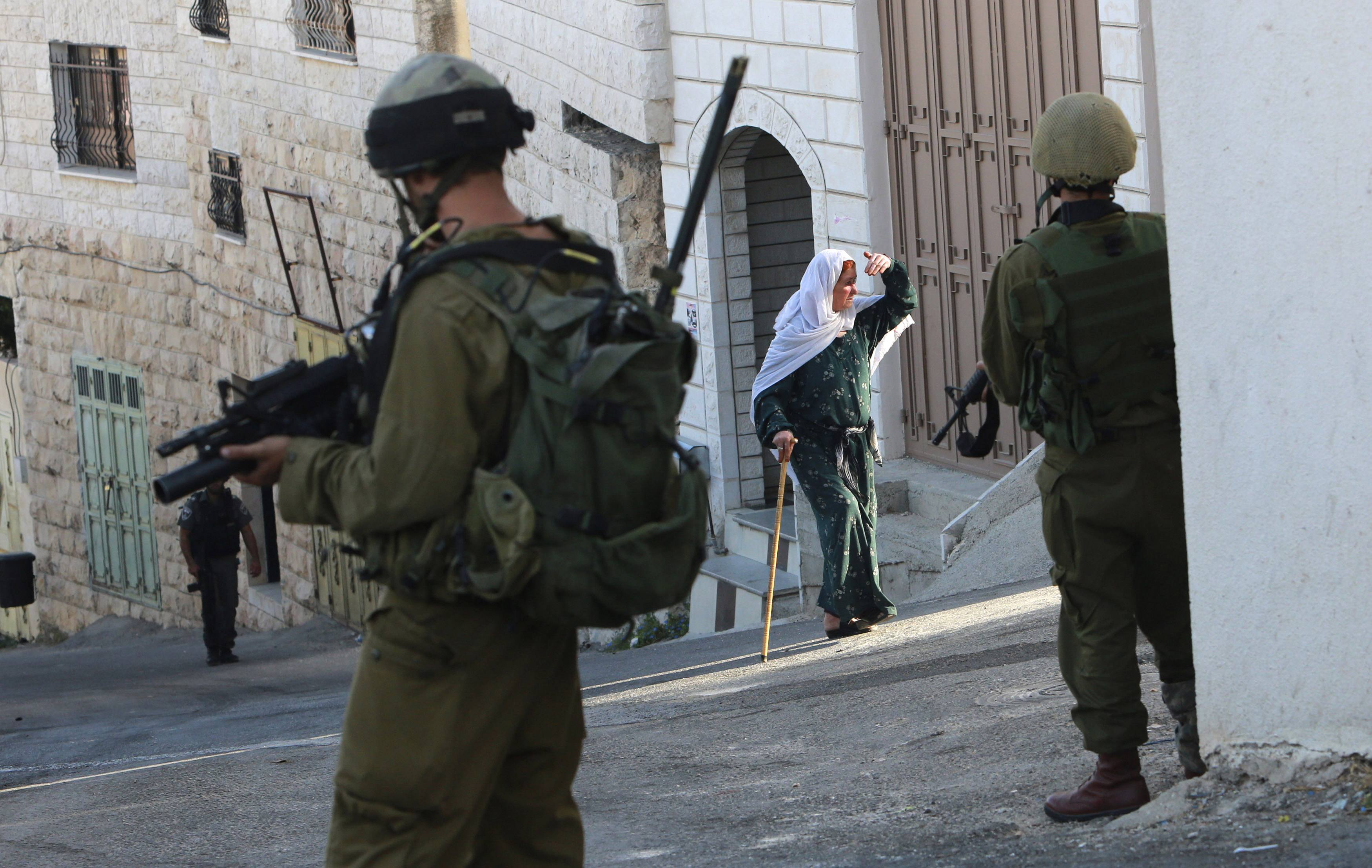Latest NEWS
- Aswat Masriya, the last word
- Roundup of Egypt's press headlines on March 15, 2017
- Roundup of Egypt's press headlines on March 14, 2017
- Former Egyptian President Hosni Mubarak to be released: lawyer
- Roundup of Egypt's press headlines on March 13, 2017
- Egypt's capital set to grow by half a million in 2017
- Egypt's wheat reserves to double with start of harvest -supply min
- Roundup of Egypt's press headlines on March 12, 2017
WFP steps up Gaza food aid after Egypt opens Rafah crossing

A Palestinian woman walks next to Israeli soldiers standing guard during a raid Abed near Nablus on August 11, 2014 - Omar/Reuters
By Katrina Quick
LONDON (Thomson Reuters Foundation) - For the first time since 2007, a United Nations World Food Program (WFP) convoy crossed from Egypt into the Gaza Strip on Wednesday, carrying enough food for around 150,000 people for five days.
Eighteen trucks carrying more than 15,000 food parcels containing ready-to-eat items such as canned meat, beans, tea and other drinks, made the seven-hour trip from Alexandria to the Rafah crossing, which has been closed since the start of the Gaza blockade in 2007, the WFP said in a statement.
A second load of aid is expected to cross into Gaza in the next three days. The Rafah crossing is the coastal enclave’s only land crossing point not controlled by Israel.
Christian Aid said the food was essential as Gaza’s farming sector had been destroyed during the Palestinian enclave’s seven-week conflict with Israel. It said its partner, the Agricultural Development Association, estimated the conflict had cost Gaza’s farm and fishery sectors more than $100 million and the livelihoods of more than 8,700 families.
“In a matter of weeks this conflict has once again fueled the ‘de-development’ of the Gazan economy with huge destruction to these sectors and the lives of fishermen, farmers and their families, which will take years to recover from,” said Madeleine McGivern, Christian Aid Program Officer.
“A growing number of people were entirely dependent on food aid before this latest round of violence. Now that number will rise even higher.”
The United Nations Refugee and Works Agency (UNRWA) has predicted that an additional one million Gazans will need food aid this year. The territory’s population is around 1.8 million.
Gaza’s only power station was destroyed at the end of July, making it almost impossible to refrigerate locally grown food. This, combined with the sharp reduction in local food output, has pushed up prices to a point where most Gazans cannot afford to buy fresh food.
“The opening of the Rafah crossing for humanitarian aid provides a major opportunity to scale up aid delivery to Gaza and needs to be sustained,” WFP Country Director Pablo Recalde said. “WFP has provided emergency relief from the onset of the conflict and will continue its food deliveries to Gaza to reach people affected by the conflict”.
The WFP said it had provided daily emergency food rations to up to 350,000 people in Gaza since the conflict began in early July.
The latest of several ceasefires was holding on Wednesday, enabling Gazans to go to banks and shops and try to resume a normal pace of life.
(Editing by Tim Pearce; timothy.pearce@thomsonreuters.com)
(Thomson Reuters Foundation, the charitable arm of Thomson Reuters, covers underreported humanitarian, human rights, corruption and climate change issues. Visit www.trust.org)










